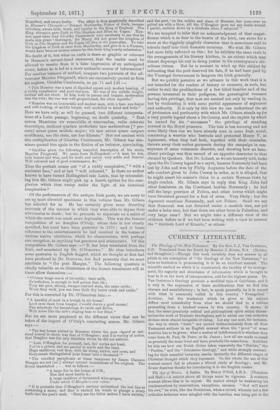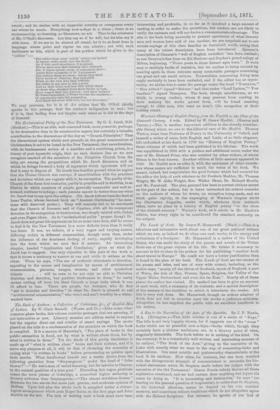The Age of Stucco. A Satire. By Henry O'Neil, A..R.A.
(Chapman and Hall,)—A satirist above all things must be vigorous. A common consent allows him to be unjust. He cannot always be weakening his condemnations by reservations, exceptions, excuses. "God will know his own," he cries, like the Dominican, when a crowd, wherein not a few orthodox believers were mingled with the heretics, was being put to the sword ; and ho smites with an impartial severity or savageness every one whom ho meets. Everything now-a-days is a sham ; there is no statesmanship, no learning, no literature, no art. That is the substance of Mr. O'Neil's discourse. Let him say so if he will, but let him say it with force. If we are to be abused all round, lot it be at least done in language whose point and vigour we can admire ; not with such feebleness as this, which is part of the portion which ho gives to the "critics '':—
"Bat critics from some ' subtle ' sphere are hurled In mercy, critie-nutdo, into the world; Or, if they need experienee. it is gained,
Not as most men that blessing have obtained, For, if report speaks truth—it sometimes does—
Anent these monarchs of th' Anonymous One curious thing we learn; before they tried
Their hands at criticism, they had plied Them on the very Arta they criticize,
But failed in any race to win a prize. And so, their scorn and love they freely chuck At those who, whether from more brains or luck, Have reaped their tiny harvest ; and these barkers By Fame unmarked, of Fame become the markers,- 01 opportunity take full possession, And mark the score with love, but not discretion."
We may presume, for it is of Art critics that Mr. O'Neil chiefly speaks in this passage, that the author's indignation is real ; but If it is, that feeling does not inspire such verso as it did in the days of Juvenal.































 Previous page
Previous page